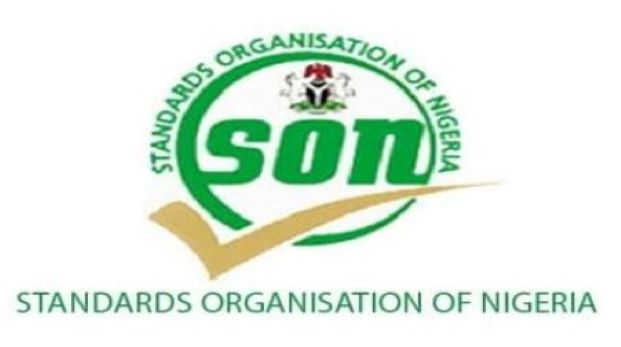General News
Why Only Truly Indigenous E-Commerce Companies Are Champions

By Dr. Ajit Sigh, international trade lawyer spoke in Lagos on a short visit to Nigeria
By midday on Tuesday September 4th 2018, a remarkable development,whose reverberations are still felt today, shook the e-commerce world and the whole of Wall Street.
Amazon, an American e-commerce giant, had followed Apple Inc. to become the second U.S. company to reach $1 trillion in market value after the company’s shares climbed 1.9%, briefly topping the $2,050.27 needed to push the company’s value above $1 trillion.
To put this in sheer perspective, it is fitting to bear in mind that Nigeria’s current external reserves is pegged at $42.3billion (as at October 25th), a figure which amounts to less than five per cent of Amazon’s worth.
Available data shows that it took Amazon only about 165 trading days to grow its market value from $600 billion in January 2018 to its valuation of $1 trillion in September 2018 – an astronomical rise that saw it put daylight between it and the likes of Microsoft and Google’s parent company, Alphabet. Conversely, Apple needed about 183 trading days to hit the $1 trillion mark after it reached $900 billion in November 2017.
Amazon’s rise can be put down to its unalloyed status as a disruptive force of commerce, with analysts and other Wall Street watchers predicting the company’s imminent overtaking of Apple as the biggest and most valuable company in the United States.
Indeed, the identity of the first five companies on the list of the world’s most valuable companies – Apple, Amazon, Alphabet Inc., Microsoft Corp. and Facebook Inc. – further goes to demonstrate the pre-eminence of tech companies and the undeniable role of technology in the emerging world order of digital wealth where oil, previously the most valuable resource, has been relegated to the back-burner.
Despite its disruptive business model and series of high-profile acquisitions which have undoubtedly boosted its revenues, Amazon remains an e-commerce company – a sector that is fiercely indigenous.
With the backdrop of all the arguments against some of its unfair business practices, Amazon remains a hit with a large segment of the American populace who are traditionally at home with online shopping. According to research, an estimated 79 percent of Americans shop online, a figure that amounts to abouteight in 10 Americans.
While Amazon can be reckoned with as a global e-commerce behemoth, there is no denying the fact that, it will struggle to replicate the brilliant success it has enjoyed in other climes.
As part of its expansionary plans, Amazon has spread its operations to over a dozen countries including the United Kingdom, India, China and Singapore. While sales outside the United States amounts to about a third of its total earnings, the company has also come to learn that selling abroad is not easy. In addition, it has also come to the realization that, e-commerce is best left to the indigenous players who understand the terrain and idiosyncrasies in each country.
Though it has enjoyed a fair measure of success in India where it has attempted to take on FlipKart – the country’s predominant indigenous player – with lower prices, Amazon has been almost an abysmal failure in China – the world’s fastest growing e-commerce market. Alibaba, Pinduodo, Taobao and others are deeply entrenched in the country owing mainly to their understanding of the complex vortex of persuasions influencing the shopping habits at play in that country. Today, Amazon struggles to retain a foothold in China, whereas Alibaba enjoys over 50% of the market share.
Considering the immense financial resources and spending power at its disposal, one will expect that Amazon will conquer every market it berths in. However, the incontrovertible fact remains that, to succeed in any market requires more than just financial power, but a large dose of street-smartness, an understanding of the people and a business model that is realistic and suited to their local circumstances.
Here in Nigeria, the reality is not much different.
Ingrained in the cultural complexities of a society or people are certain peculiarities or predilections, all of which contribute to shaping their every tradition, including their shopping habits.
Despite the growing popularity of online shopping, the average Nigerian, try as hard as you can, will never shake off the practice of preferring to see, touch and/or experience a product before parting with hard-earned money, thereby justifying the increasing relevance of brick-and-mortar stores in Nigerian e-commerce.
Trust also remains a major issue.
In spite of the large strides recorded in the e-commerce sector, many Nigerians are still understandably reluctant to drop their credit card details online due to the real and ever-present potential of cyber-fraud. Others, who have managed to embrace the e-commerce revolution, are still keen to put their trust in the confidence-inducing personal touch that the patronage of a physical retail store inspires. What about the millions of unreached or under-served Nigerians in the hinterlands, devoid of a reliable internet connection and the basic requirements to embrace e-commerce?
It must be stated here that the e-commerce industry also has the capability to unmask mere hype from substance.
Since Nigerians got bitten by the e-commerce bug, the country has seen several foreign players, many of them backed by angel investors and venture capitalists. These fancy new shoesemerge on the scene by painting a larger-than-life picture of overwhelming boom only to fade away after a while and exit the country quietly.
The scenario is a simple but vicious one: the investors are buoyed by projections of Nigeria as Africa’s biggest market, blessed with a youthful, aspirational population on the verge of cracking the e-commerce conundrum and exploding into a money-spinning investor’s dream.
But what happens?
These foreign investors, for all their good intentions, remain what they are famous for: profit-seeking, short-term oriented business impresarios. Once they get tired of seeing their investments fail to yield the promised returns, the patience wears thin. Once this happens, it is only a matter of time before Nigeria counts the many-faceted costs of another failed venture.
History and statistics have revealed worldwide that, only a truly indigenous e-commerce company backed by its own people has the staying power to stick and stand the test of time, irrespective of the regulatory, operational and industry-specific challenges that may arise. Indeed, only a locally-backed e-commerce company with a realistic business model that is not short-term in outlook, can invest significantly in infrastructure and care sufficiently not to embark on random job cuts, all in a bid to satisfy the cravings of impatient venture capitalists.
Nigeria boasts perhaps only one of such powerhouses in Konga – which recently combined its operations with Yudala, another bold player with a futuristic but realistic e-commerce model which has been widely aped by other global e-commerce companies, Amazon inclusive.
Where an e-commerce company proves itself adept at adapting to local circumstances; when it has the boldness to accommodate or fuse online shopping with cost-intensive offline stores nationwide which cater to the needs of the unreached, thereby bringing the convenience of e-commerce home to them; when a business invests considerably in massive regional warehouse facilities; refrains from retrenchments or down-sizing even in the most harsh business cycles and quietly goes about empowering more Nigerians with employment opportunities through its expansionary and ambitious projects, then you are closer to building an e-commerce giant that can rival the Amazons and Alibabas of this world.
Konga owes it to every Nigerian to remain in business forever…
General News
FG Halts Controversial FRC Dues amid Industry Outcry

Federal government has temporarily suspended the controversial annual dues imposed on public interest enterprises by the Financial Reporting Council (FRC) after fierce opposition from businesses.

Jumoke Oduwole, minister, Industry, Trade, and Investment, announced the decision during a Ministerial Consultative Meeting in Abuja on Wednesday.
The move follows mounting pressure from private sector groups, including the Nigeria Employers’ Consultative Association (NECA) and the Manufacturers Association of Nigeria (MAN), who slammed the Financial Reporting Council (Amendment) Act 2023 for burdening companies with excessive fees.
The Act mandates cumulative annual charges for non-listed entities and imposes a harsh 10% monthly penalty on unpaid dues, compounding until full payment, a provision that sparked widespread backlash.
At the meeting, major industry players like NECA, MAN, the Nigerian Association of Chambers of Commerce (NACCIMA), oil producers, and telecom operators warned that the fees would cripple businesses already struggling in a tough economy.
Oduwole clarified the suspension, stating, “The government has decided to direct the Financial Reporting Council to pause in the implementation of the new annual dues. You know that I am a lawyer, and a suspension request by the organised private sector would be in contravention of legislation duly passed by the National Assembly. A pause is an administrative process simply to review, in line with what we discussed today.”
She assured stakeholders that the halt would last no longer than 60 days, with a technical working group—including FRC officials and private sector representatives—set up to reassess the policy.
“We are a listening administration. The private sector has requested a range from three months to an indefinite suspension. We are not going to do that. So, at the most, 60 days is in my estimate. We are going to set up a technical working group comprised of the FRC and the organised private sector who have formally written in, and this will be reviewed,” Oduwole emphasized.
General News
SON Pledges to Standardize Made-in-Aba Products

The Standards Organisation of Nigeria (SON) says it is intensifying efforts to standardise locally manufactured products, including Made-in-Aba brands, in order to enhance both local and international acceptance.

Aharanwa Chuks, Director of Region (South East), SON, communicated this in an interview with the News Agency of Nigeria (NAN) on Wednesday in Abuja.
Chuks said through the Mandatory Conformity Assessment Programme (MANCAP), SON ensured that all Nigerian-made products conformed to the relevant Nigerian Industrial Standards (NIS).
According to him, MANCAP involves direct engagement with manufacturers to certify that their products meet established quality benchmarks.
“This process includes inspecting production facilities, sampling products and testing them against NIS requirements.
“Successful compliance results in the issuance of the MANCAP certification, signifying adherence to quality standards.
“In Aba, SON has been proactive in educating manufacturers about standardization.’’
The director said SON also conducted stakeholder interactions; gathering manufacturers from various sectors to provide guidance on producing goods that met both local and international standards.
“For instance, leather manufacturers in Aba have been sensitized on standardization practices to enhance the global competitiveness of their products.
“Manufacturers are encouraged to collaborate with SON to obtain MANCAP certification, ensuring their products are not only marketable within Nigeria but also competitive internationally.
“This initiative aims to boost consumer confidence and promote the acceptance of Made-in-Aba products globally,” Chuks said.
General News
EFCC Arrests 133 @ Ponzi Scheme Training Academy

Operatives of the Economic and Financial Crimes Commission (EFCC), has busted a Ponzi Scheme Academy and arrested 133 suspects in Abuja.

They were arrested at the Compensation Layout in Gwagwalada area of the Federal Capital Territory, FCT, Abuja, following actionable intelligence on the existence of the Academy.
The Academy, named Q University (a.k.a Q-Net) is in the business of recruiting gullible young Nigerians who are trained to recruit more gullible citizens into the scheme with the promise of getting unrealistic profit returns.
The suspects are enrolled into a training codenamed: “Special Training for New Generation Billionaire” and brainwashed to believe that they would graduate into the league of billionaires.
They got into the training by obtaining a form the promoters called “Independent Representative Application Form” with promotional slogans such as: “I’m a Champion” “I’m Unstoppable”, “I’m Infinity”, among others.
The EFCC carried out the operation in collaboration with officers and men of 176 Guards Battalion, Nigerian Army.
Items recovered from the suspects include phones, computers and other electronic gadgets.
They will be charged to court as soon as investigations are concluded.

 News2 days ago
News2 days agoPolice Arrest 4 Bank Staff over Alleged ₦270m Fraud, Money Laundering

 E-Financial2 days ago
E-Financial2 days agoUBA Grows Profit to ₦804Bn, Declares N3 Kobo Final Dividend

 E-Business2 days ago
E-Business2 days agoNIMC to Prosecute Nigerians Printing ‘NIN Cards’, Says Only Slip is Legal

 E-Business2 days ago
E-Business2 days agoUnleashing Nigeria’s Business Potential: The Cloud as Catalyst for Growth

 Telecom2 days ago
Telecom2 days agoOpen Access Fabrics Set to Drive Connectivity to Achieve a Digital Economy

 General News2 days ago
General News2 days agoAuthorities Seize 1842 Devices in African-Wide Cybercrime Crackdown

 Telecom2 days ago
Telecom2 days agoMTN Nigeria and Pan-Atlantic University Invite Media Practitioners for 4th Media Innovation Programme

 E-Financial2 days ago
E-Financial2 days agoEnza Raises $6.75m Seed Funding to Boost Embedded Payment Solutions Across Africa















